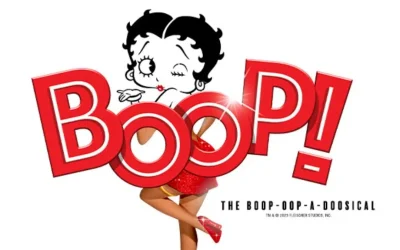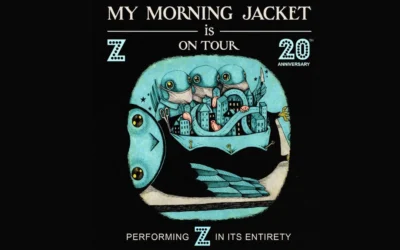A standing room only crowd of 48,103 at Yankee Stadium saw Derek Jeter reach and surpass the 3,000-hit mark unlike anyone in baseball history on Saturday, July 9. Jeter entered the Yankees‘ game against the Tampa Bay Rays two hits shy of the milestone and went a remarkable 5-for-5 — including a home run for hit no. 3,000 in the second inning and a single that drove home the game-winning run in the bottom of the eighth inning of the Yankees’ 5-4 victory.
Jeter, who collected more than two hits in just two of his first 66 games this season, had just two homers in his first 281 at-bats, and he hadn’t homered at home since July 22, 2010. In reaching the milestone the way he did, Jeter became just the second player to homer for his 3,000th hit (ex-teammate Wade Boggs was the first) and the second to collect five hits in the game in which he reached 3,000 hits (Craig Biggio, the previous player to reach 3,000 hits, went 5-for-6 in his milestone game June 28, 2007).
The vast majority of those who saw Jeter turn back the clock in person and pen a storybook ending to what was shaping up as an anticlimactic march to 3,000 were sitting in seats they’d purchased themselves. That was tough news for some ticket resellers, who, for a variety of reasons, found it difficult to obtain tickets to the weekend’s potential record-setting games.
As the Yankees’ scheduled four-game series against the Rays began Thursday, July 7, tickets for the Friday and Saturday games (the Friday night game was postponed due to rain) were up to three-times more expensive on the resale market than those for Thursday or Sunday.
The supply/demand ratio was caused partly by the calendar. Many corporate executives — those most likely to possess the high-end tickets that are the lifeblood of the resale industry — go on vacation during the week after July 4th and got rid of their tickets long before it became clear Jeter would reach 3,000 hits during the Yankees’ homestand.
“Most playoff games we’ve historically seen with the Yankees, we’ve seen an equal number of buyers and sellers on the market,” Jason Berger, the managing partner of AllShows.com, told Ticket News. “For this [Saturday’s] game, there are a lot of buyers and not a lot of people who are selling tickets.”
More importantly, those who got their tickets months ago — either from executives or at the traditional box office — had little interest in selling their tickets and giving up a chance at seeing an unprecedented bit of Yankees history as well as a rare opportunity to see one of baseball’s magic numbers eclipsed.
Jeter was the first Yankee to ever reach 3,000 hits, which is to batters what 300 wins is to pitchers — a near-automatic ticket into the Hall of Fame. Of the first 27 players to record 3,000 hits, 24 are in the Hall of Fame and Biggio will likely be a first-ballot inductee in 2013, leaving only the banned Pete Rose and the steroid-stained Rafael Palmeiro on the outside looking in.
Interest in seeing Jeter collect his 3,000th hit was further stoked by the lack of anyone else on the cusp of joining the club and the lack of players approaching baseball’s other storied round numbers.
Nobody believes Jeter will be the last hitter to collect 3,000 hits — unlike two years ago, when interest in Randy Johnson’s pursuit of his 300th win was enhanced by the fact nobody else was even within screaming distance of 300 wins — but there are no sure things on the horizon, either. Ivan Rodriguez (2,842 hits) and Omar Vizquel (2,831 hits) are the closest to the milestone, but Rodriguez is a 39-year-old part-time catcher and Vizquel is a 44-year-old utilityman who rarely starts.
Jeter’s teammate/foil Alex Rodriguez (2,762 hits) could reach the mark as soon as the end of 2012 if he stays healthy, but he is undergoing knee surgery this week and will likely be out until August — just the latest injury suffered by a player whose production has dipped dramatically the last three seasons. After that, the most likely possibilities are a pair of 37-year-olds in Johnny Damon (2,662 hits) and Ichiro Suzuki (2,342 hits), who will need at least two and three more productive full seasons after 2011, respectively, to have a shot at the magic number.
The youngest player with a seemingly reasonable chance to reach 3,000 hits, 31-year-old Albert Pujols of the St. Louis Cardinals, hasn’t even reached 2,000 hits yet while only one 20-something (the Boston Red Sox‘ Carl Crawford, who turns 30 next month) has reached 1,500 hits (though 28-year-old Miguel Cabrera is two hits away)
In addition, only one other player in baseball is close to a major milestone, and interest in Jim Thome’s march to 600 homers (he’s five homers away entering the All-Star Break) has been dulled by his injury-plagued season as well as the dilution of the home run and the scandals associated with it (though Thome has never been connected to steroid use).
More players have reached 600 home runs since 2002 (four) than in the 20th century (three) and only Ken Griffey Jr. has not been associated with steroid use. And 10 of the 25 players with 500 home runs began their careers in 1986 or later. Seven of those 10 players are either admitted or suspected steroid users.
Berger said the market would have been friendlier to buyers had Jeter gone for his 3,000th hit this week, when executives would have been more likely to maximize their initial investment. “[Tickets] would have been a lot higher in value if it was [this] week,” Berger said. “We’re just not seeing a lot of people saying ‘Wow, the value of my ticket has increased in value so much, I’m going to try to sell it. We’re just not seeing that right now.”



